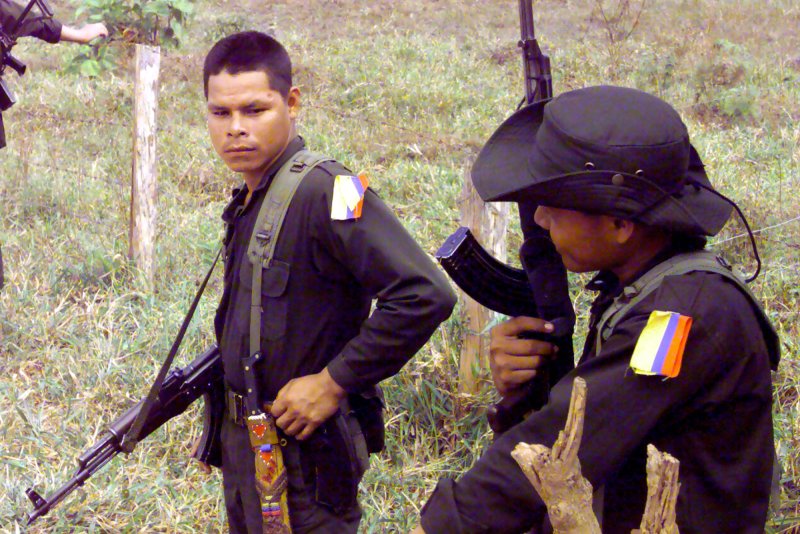FARC rebels gather at peace talks Jan. 29, 2000, with the government in Bogota, Colombia. On Tuesday, the U.S. ambassador to Colombia said the United States would not press for the extradition of FARC personnel who have committed crimes against U.S. interests, and that Washington would trust the Colombian government to decide their fate. The comments came after a peace agreement was signed between the left-wing guerrilla group and the Bogota government during negotiations in Havana, Cuba, last month. File photo by Rafa Salafranca/UPI |
License Photo
HAVANA, Oct. 13 (UPI) -- The U.S. ambassador to Colombia on Tuesday said the United States would no longer demand the extraditions of militants with the Revolutionary Armed Forces, or FARC.
The BBC quoted Ambassador Kevin Whitaker as saying Washington would leave the fate of FARC rebels who have committed crimes up to the Colombian government.
Speaking to Colombian media, Whitaker said the United States would always seek suspected criminals but noted if the Bogota government "decides it is not convenient to extradite them [to the United States], we'll respect that."
The comments come after both sides in Colombia's civil war agreed to a peace deal in Havana late last month. Since 2012 leaders from the FARC and Bogota government have attempted to negotiate an end to the 51-year-old conflict, which has killed an estimated 220,000 people.
The deal, which Whitaker called "historic," would provide amnesty for FARC personnel who committed political crimes during the war, instead allowing lesser punishments for those who admit to wrongdoing. It also calls for FARC members to give up their weapons and for the establishment of a court to prosecute war crimes on both sides.
FARC leaders have in the past rejected any deal that would allow their members to be extradited to the United States, and many have pushed for the release of Simon Trinidad, a rebel leader who is serving a 60-year prison sentence for plotting to kidnap three Americans.
Whitaker said if Colombians wanted to see the United States' pledge to not demand extraditions as a "contribution to the peace process," they were welcome to do so.
U.S. Secretary of State John Kerry last month said he was "very pleased," about the Havana agreement, characterizing its tenets as "major breakthroughs on the outstanding issues in the peace process negotiations: transitional justice, disarmament and a timetable for signing a final agreement."















